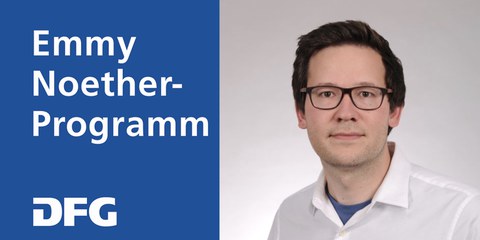Mar 20, 2023
New Emmy Noether group "Correlated Electrons under Extreme Conditions"
We are glad to announce that Dr Marein Rahn, previously a postdoc at IFMP, has been awarded an Emmy Noether grant by the German Science Foundation. The goal of Dr Rahn's new junior group is to extract momentum- and energy-resolved views of quantum matter modified by external stimuli like extreme pressure, strong magnetic fields, and ultra-low temperatures.
The fascinating behavior of quantum matter emerges from complexity at the atomic scale. In the most interesting cases, this complexity is profound indeed: Electrons may have many degrees of freedom, which are shaped by local and crystal symmetries, and interact by different mechanisms. One strategy to "disentangle" and understand such materials is to manipulate the equilibrium of these correlations. In essence, this broadens our horizon beyond what happens to be the ground state at ambient conditions.
A major limiting factor of this research is that bulk physical or transport properties are rarely sufficient to explain quantum matter "bottom-up". The new group's focus will therefore be to implement experiments that combine complex sample environments with state-of-the-art x-ray scattering methodologies. This is a timely strategy, given the rapidly advancing capabilities at synchrotron radiation sources, as well as the recent commissioning of state-of-the-art x-ray laboratories of at the Chair for Physics of Quantum Materials at IFMP. On the one hand, combining the technical complexities of x-ray instrumentation and non-standard sample environments makes for a considerable experimental challenge. On the other hand, the group will stand a chance to access phase space of quantum matter that has rarely been charted on the relevant scales of momentum and energy.
With this strategy, the group hopes to address a range of topics, including the formation of electronic superlattices, the behavior of quasiparticles near the Fermi level, and collective charge excitations at higher energies. A deeper understanding of such phenomena could have far-reaching implications in materials science, electronics, and quantum computing.
We welcome the new Emmy Noether research group to TU Dresden and look forward to the exciting research they will contribute to our faculty in the coming years. Please join us in wishing them all the best as they embark on this promising new project.
Group webpage: https://www.ceec-dresden.de

